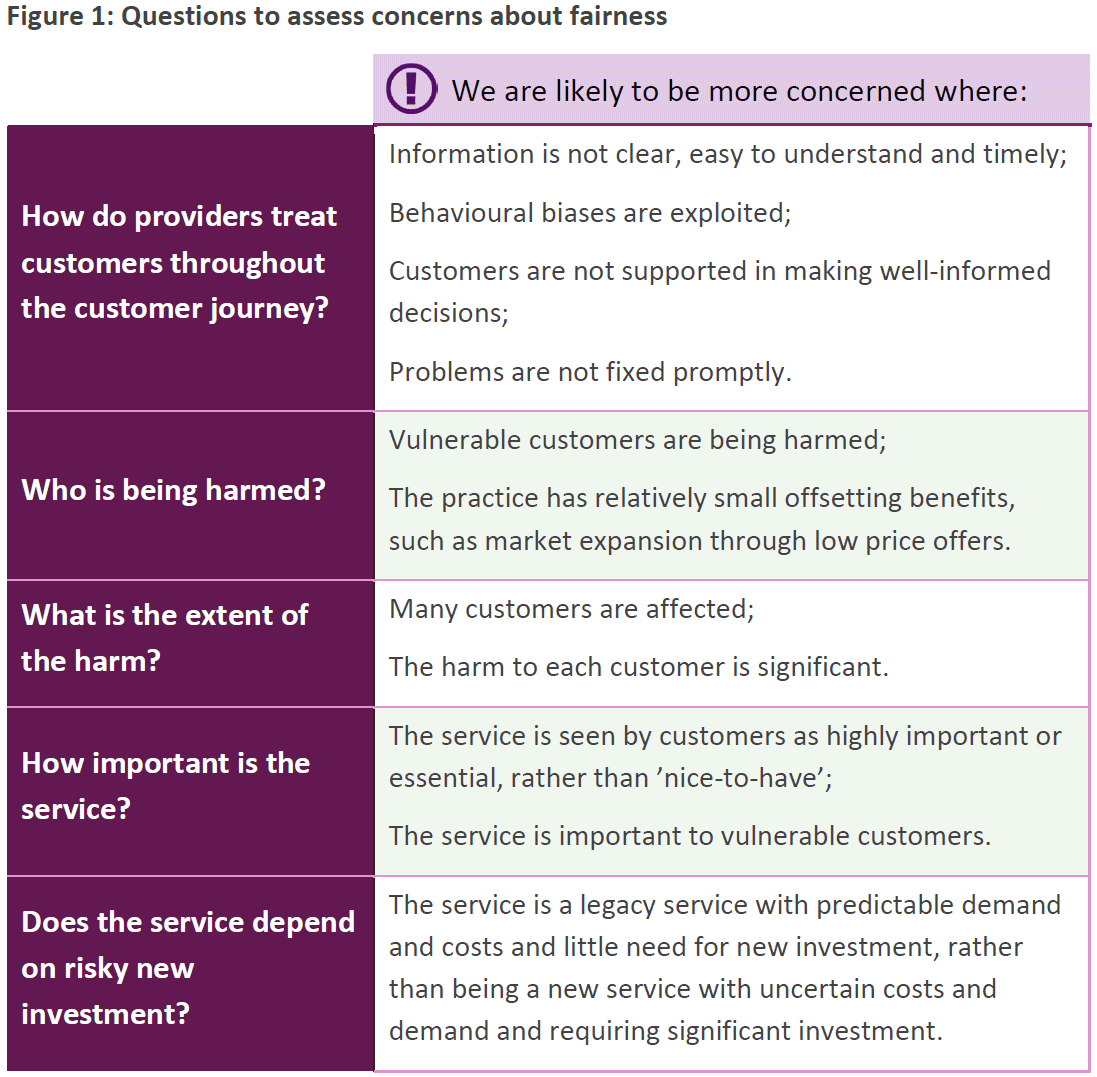Ofcom to Tackle Unfair and Harmful Practices by UK Broadband ISPs
The national UK telecoms regulator, Ofcom, has today begun a new consultation that seeks views on their plans to create a new Fairness Framework (guidelines), which will be designed to explain to broadband, phone and TV providers how they will consider whether their practices and the way they treat their customers is fair.
The move is intended to complement the recent “Fairness for Customers” commitment, which saw Ofcom asking broadband and mobile providers to voluntarily commit themselves to supporting a series of customer promises in respect to various areas including their quality of support, clarity of information and fairness in pricing etc.
By contrast the new Fairness Framework is centred on how Ofcom will actually assess “fairness” in the regulatory sense, such as in terms of identifying and then “stamping out unfair and harmful practices.” Arguably this might seem like something that the regulator has already been doing on many different occasions via their past rulings, although they haven’t underlined this before with a clear framework.
Advertisement
As such the new discussion document (PDF) highlights the type of company practices that Ofcom is most likely to see as unfair, and which may lead to regulatory action. One example is companies attempting to mislead their customers or take advantage of those who may be less able to choose the best deal for their needs (e.g. vulnerable consumers like pensioners)
The Framework also sets out the kinds of issues the regulator will examine when they assess whether a company is treating its customers fairly. These include the importance of the service in question; the degree of potential harm; and which customers are affected – for example, customers who may be in vulnerable circumstances.
Ofcom – What we are proposing (in brief)
We have set out the types of questions and factors we would consider in assessing whether customers are being treated fairly.
Our duties are underpinned by securing fair outcomes for customers and we act where necessary to protect people from harmful practices. This paper sets out our proposed approach to identifying whether people are being treated fairly or whether there are unfair practices we need to address. We set out five key questions for this purpose, including:
(i) How do providers treat customers throughout the customer journey?
(ii) Who is being harmed?
(iii) What is the extent of the harm?
(iv) How important is the service?
(v) Does the service depend on risky new investment?We recognise that these kinds of assessments can be complex and invite comments on our proposed approach.
We view this discussion paper as part of a wider debate about securing fair outcomes for customers. Assessing whether a certain practice is fair or unfair is not always straightforward, particularly where some people benefit while others lose out. This can make it challenging to determine whether and how best to deliver fairer outcomes. This paper is designed to create a shared understanding of how Ofcom is likely to approach considering whether certain practices are fair for customers in broadband, mobile, home phone and pay-TV markets.
As part of Ofcom’s assessment of fairness, and of whether and how they should address any unfairness, the regulator said they would be “likely to consider how far providers are living up to the six individual commitments” set out in their recent ‘Fairness for Customers’ scheme. “The approach we take will be applied flexibly, considering fairness in the round. It is not intended to be a static approach and it would be adapted as new issues arise,” said the document.
Sharon White, Ofcom’s Outgoing CEO, said:
“Our fairness programme is delivering real benefits for customers – putting money in their pockets and helping more people get fairer deals.
Everyone should expect to be treated fairly from their provider, but that hasn’t always happened in the past. There is now a real chance to change that.
It’s vital we don’t chase the wrong solution to complex problems, which would see many customers worse off. So government, regulators and consumer bodies must all work together to ensure customers get a fair deal.”
Ofcom plans to publish further “targeted measures on fairness, based on our evidence, in the coming weeks.” We believe this is a reference to how they will ensure clear-cut contracts for people who pay for their mobile services and handsets together etc.
Advertisement
Meanwhile they are inviting views on the draft Fairness Framework, with all responses to be provided by 12th August 2019.

Mark is a professional technology writer, IT consultant and computer engineer from Dorset (England), he also founded ISPreview in 1999 and enjoys analysing the latest telecoms and broadband developments. Find me on X (Twitter), Mastodon, Facebook, BlueSky, Threads.net and Linkedin.
« Boris Johnson Pledges Full Fibre for All UK by 2025 – Doesn’t Say How UPDATE
















































Comments are closed